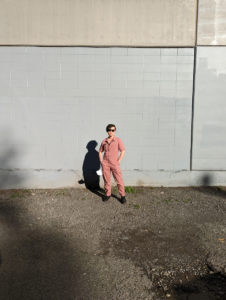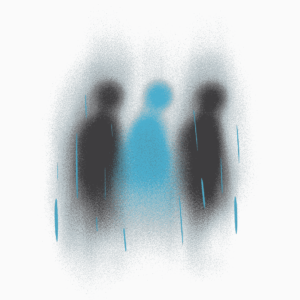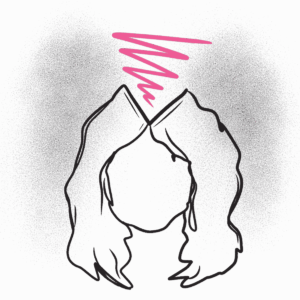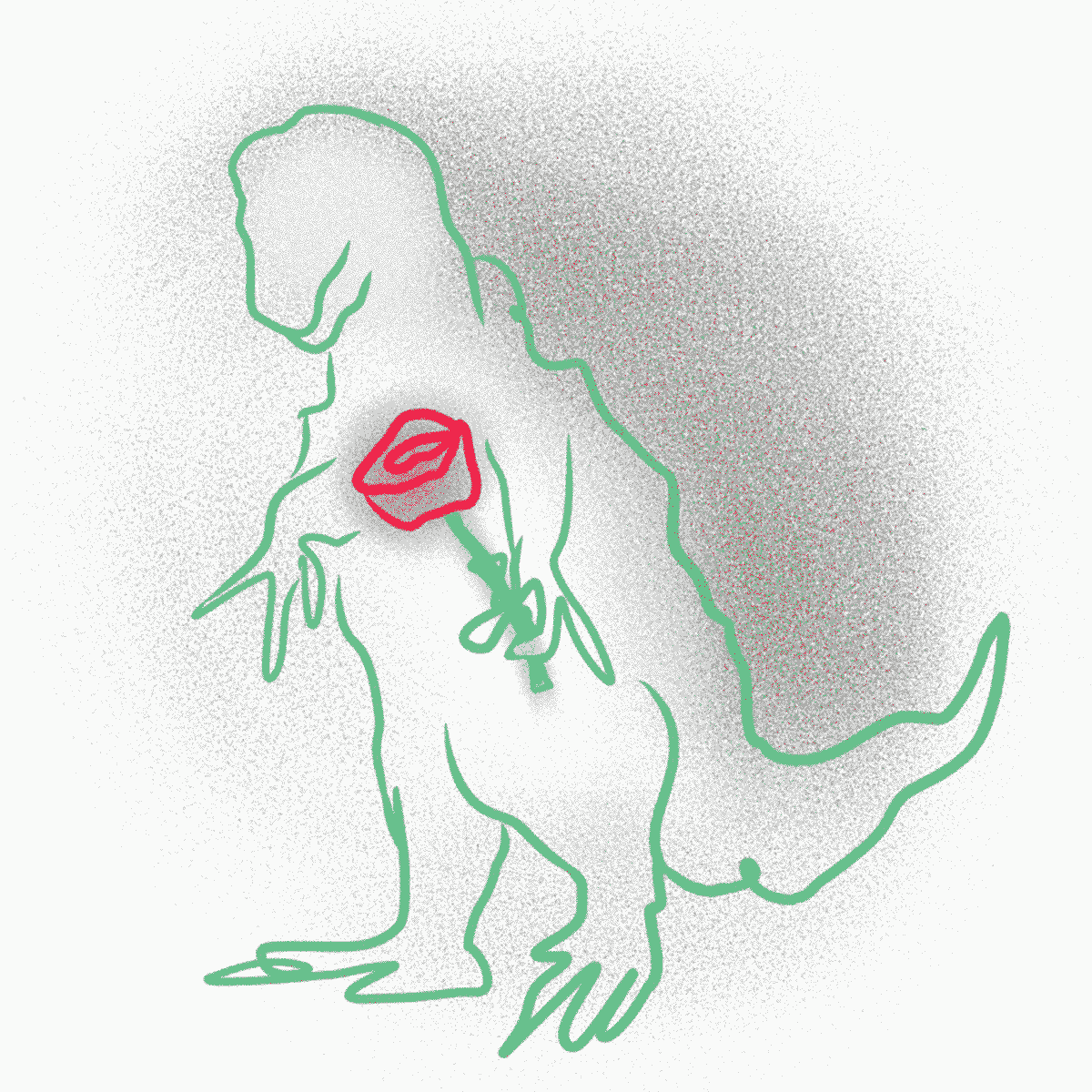Kim Fu is a Seattle-based writer whose short story collection Lesser Known Monsters of the 21st Century, was a finalist for the 2022 Scotiabank Giller Prize. They are also the author of two novels, For Today I Am a Boy, which won the Edmund White Award for Debut Fiction and the Canadian Authors Association Emerging Writer Award; and The Lost Girls of Camp Forevermore; as well as a poetry collection, How Festive the Ambulance. I had the privilege of speaking with Fu about their work across genres, their approach to writing the unreal, and much more.
I wanted to ask about your multidisciplinary approach to writing — has working across genres always been a part of your writing practice?
I started writing from the time I was a little kid, and right off the bat, I was writing fiction and poetry. But recently I’ve found my interests are turning more and more solidly to fiction, which was a big change for me. When I was writing novels, I was simultaneously writing poems and essays and everything else. But while I was writing Lesser Known Monsters, I was only writing short stories, and that was really new and unusual for me. Since then, I’ve basically only been writing fiction. I’ve been writing short stories, and I’ve been working on a new novel.
I always was a multidisciplinary writer — that used to be really important to my process. I needed to be working on multiple things at once so when one thing wasn’t going well I could bounce somewhere else and spread my energies out that way. But lately, I found fiction is the only thing that will do for the things on my mind.

In a Quill and Quire article in 2016, you said: “I feel that if I wrote a short story, and everyone told me it was awful, I would throw it away. And that would be that. With a poem, if I believed in it, I would believe in it no matter what anyone said.” Now that you have this short story collection, I wondered if you still feel the same way about these two genres?
Now I feel that way about everything — I’m less and less precious about my writing. That has been the key to continuing on, in the sense of having a career that feels like it has longevity, but then also in the sense of confronting the blank page every day. I do feel ready to throw things away if they’re not working, or if they’re not getting through to anyone else.
I have been turning away from poetry a little bit, as I mentioned, and some of that is because I’ve found ways to incorporate the things I love most about poetry into my fiction. Also, people tend to read poetry as autobiographical — even when it isn’t — and that was starting to frustrate me. The thing I love most about poetry is that you can make these huge leaps in a way that I wasn’t yet comfortable doing in fiction, in terms of metaphor and what is possible. You can describe things in ways that are very strange and not explain it and just expect the reader to understand. That is just the expectation that readers come to poetry with; readers are willing to do the work. And I love that, and I still love to read poetry. But I’m finding that there are ways to do that in fiction that I’m enjoying more at the moment.
In general, I’m ready to throw away anything. Three times this year I’ve restarted my novel — to a very dramatic degree. I’ve thrown out three completely different premises. And some of them I got pretty far. I was throwing out 20,000 or 40,000 words, just because it wasn’t working for me; I could tell it wasn’t the thing yet. And I’m okay with that.

I wanted to ask you about climate fiction writing. I was really struck by your short story, “Bridezilla” — how did it come to be?
The story first came about just because of the word “bridezilla.” I thought about a runaway bride in the same story as a Kaiju of some kind — a giant monster. I live in Seattle, and how could you describe Seattle without describing the wildfires and the smoke in the air? How could you describe it without describing the changes to the sea? The smell? The increasing wind storms? And how could you describe it without describing the effects of climate change? How could you describe anywhere? That’s something everyone is witnessing. It is the background of all of our lives; how could it not then be part of our fiction? It’s this looming perpetual presence and anxiety. The book is about monsters, and that is a monster we all live with.
I feel like the shine of apocalyptic stories has changed a little bit. The single-cataclysm-and-everything-changes story feels more and more like a fantasy, and that’s not the kind of slow-motion apocalypse in which we live — where you’ve just got to keep on trucking. There’s no space to grieve. We adapt so fast. We adapt constantly. And it’s painful, but there’s no time to even acknowledge that pain. And that’s truer to the atmosphere we’re living in, and to how I feel, and that ends up being the kind of stories I’ll write.
There are standard fantasy plots I used to enjoy that don’t really work anymore. One of them is the ‘reveal of corruption.’ The kind of story where the king is corrupt in some way and the heroes reveal that corruption, and then everyone turns on the king. I feel like that plot structure doesn’t work anymore. We live in a world where we know now that that doesn’t do anything. There isn’t that one thing, that one moment that will wake everybody up and will change everything. That’s a reality of our world. And I think that’s changed storytelling.

I would love to hear more about your approach to writing speculative fiction.
I try to initially take the idea really seriously and at face value. My approach is what I think of as the Frankenstein approach. Mary Shelley said, “Okay, we have the one fantastical element, or the one science fiction element, and then everything else is straight realism.” And so how does this one element play out in the real world?
I also try not to think about all the metaphorical meanings and real world analogues, because those happen on their own. Whether you mean them to or not, they will work their way in because [readers will] bring those interpretations to the text no matter what. In the editing process, I can try to make sure the meanings are what I intend, but in the moment of first writing I just think about: what would these characters actually do in this scenario? How would this scenario play out in the most straightforwardly real, consequential way possible?
We’ve talked about the role of speculative fiction and these grand ideas that don’t feel very instructive as futures anymore — what do you see for the future of speculative fiction and why is it important?
I heard the writer Chelsea Vowel say that something that she really appreciates about speculative fiction is the ability to imagine futures wholecloth, without having to worry about incrementalism, or day-to-day survival; without having to worry about how we actually get to that future. And I appreciated that perspective a lot. But I don’t think that’s exactly what I’m doing.
A lot of what I love about speculative fiction, and the unreal in general, is that it gets at emotional truths I don’t feel you can get at any other way. And I do feel increasingly that these emotions are so big that I don’t know how else they could be described other than with the unreal. We’re all growing increasingly numb to the perpetual disaster around us; the unreality of everything that happens every single day. It takes something imagined — something impossible — to even let yourself access those emotions properly.
I definitely think of possible futures as an important thing for writers to tackle because it’s so important to give hope, but I don’t think that should become the only job of writers. I do think what you’re saying about capturing human emotion — and it might not always be pretty or hopeful, sometimes it is just crushing despair — is so important too.
As a reader, I really love to see a feeling I have articulated, especially because great writers articulate the feelings that you have had, in ways that you could not. There’s a scene in Future Home of the Living God where a character is in the grocery store during an unfolding apocalyptic scenario. She gets an apple from New Zealand and juice processed in China. Every element of her lunch came from a different part of the world, so that she could have whatever fresh produce she wanted at any time of the year, the way you can now if you go to the grocery store, and she has the thought, ‘This is ending, this is not going to keep going.’ And that moment spoke to this feeling I have all the time. And that’s an incredible experience as a reader to have those feelings articulated and to not feel alone in them.

I did want to ask about your use of humour. Your short story, “Twenty Hours” is such a disturbing story, but also such a funny story.
There’s an element to it in which I just want to be an entertainer — that’s part of what I do as a writer. I want people to be entertained. And humor is part of that. I also feel like, when you dig really deep into despair, at the very bottom, you hit humour. And there’s something wonderful and powerful about art that can twist your darkest feelings and impulses into some kind of pleasure.
There’s also an honesty to laughter that I enjoy. You can convince yourself to think things, or to feel things, but you can’t make yourself think something is funny. If you laugh at something, that’s a really genuine, involuntary response.
What I wanted was for the speaker to be kind of unreliable in a certain way. I wanted the speaker to be off-putting but compelling at the same time. A reason why you would laugh at that story is that it’s uncomfortable — how else do you react to this person who’s having thoughts that are objectively kind of monstrous, but also, perhaps, understandable or make sense for his particular context?
You talked a bit about the novel you’re working on and how you’ve thrown out a few drafts — do you feel settled on one now?
I do. I feel compelled by this idea in a way I hadn’t before. And for me, novels are a different experience to short stories. It’s this specific experience of feeling really immersed and connected to these characters more than any one plot event in their lives. And that, to me, is the sign that this is it. Before I had a lot of high-concept plots and worlds that weren’t quite working, and some of it is because what interested me were these plots and the world — not the people. I’m thinking about this novel all the time. I’m thinking about it when I’m trying to sleep, or when I’m walking around, trying to do other things. I do feel really drawn to it in a way I hadn’t to the other ideas. So I think that’s a good sign. But we’ll see.


